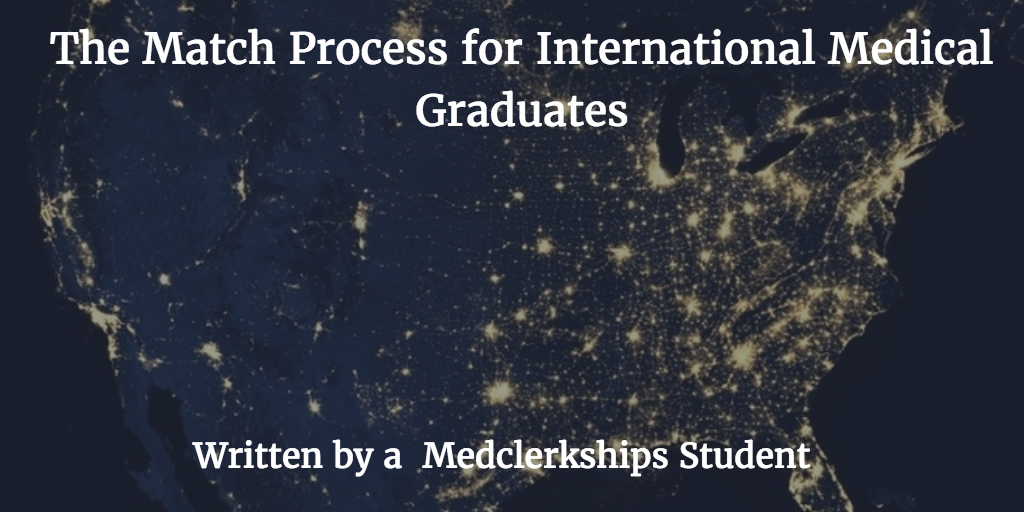
Over the years, IMGs (International Medical Graduates) have made up a large percentage of health-care professionals in the United States. Legal requirements in the United States demand for a proof of competency for these IMGs. The challenges of IMGs are greater, as compared to American Medical Students, and prime examples of this are the requirements of higher USMLE Step scores. Consequently, those international students who do make the cut are often the best and the brightest on an international scale, and frequently go on to become very successful both academically and professionally within their respective fields (Mandel, 2016).
However, this influx of IMGs to the United States has caused some problems in their countries of origin. Many IMGs come to the United States to participate in post-graduate studies and aspire to practice medicine in the United States. VISAs give these students a chance to transition into life in the United States, and a step in the direction of possibly becoming an American citizen. This especially encourages International Medical Graduates from poorer countries to leave their countries of origin, and move to the United States. Although they are ceasing an opportunity, this is a situation which causes loss of medical specialists in the countries of origin (Mandel, 2016). In fact, the World Health Organization (WHO) has recently created a code of practice that discourages first-world countries from recruiting medical specialists from poorer countries, as this practice can be seen as a sort of exploitation (Mandel, 2016).
National Resident Matching Program (NRMP)
The National Resident Matching Program (NRMP) was created with the purpose of matching students, within the medical field, to graduate programs. Medical doctors (MDs) are graduates of a Medical Degree Program. But, they must obtain and complete a residency position in order to receive their license and be able to pursue a career of practicing medicine. The NRMP strives to prevent any partiality during the recruitment process, pushing Graduate Programs to focus on the more objective credentials of applicants (Grimm, Avery, & Maxfield, 2016). For instance, an applicant will send emails to a director of a Medical Graduate Program and try to develop a friendship in order to gain priority when being considered for a Graduate Program position. The NRMP has especially focused on this issue of communication between applicants and the medical graduate program outside of the interview and review process (Grimm, Avery, & Maxfield, 2016).
While the NRMP has specifically focused on the issue of communication, the problem is that there still seems to be a great deal of bias towards International Medical Graduates (IMGs) during the matching process (Verma et al., 2016). This bias is not always obvious, but a review of recent data shows a pattern of US educated students being preferred for many specialty fields over IMGs despite the respectable qualifications of many of these IMGs (Verma et al., 2016). In fact, in order to find a position within the United States, many IMGs might need to look at data from the matching process to see which specialty field is more likely to be open to interviewing and selecting IMGs.
The Supplemental Offer and Acceptance Program (SOAP)
The Supplemental Offer and Acceptance Program (SOAP) provides applicants a chance to get an unfilled residency slot if the student had not matched or partially matched (Flannery, 2014). To apply to programs, students include their preferences and information in the Electronic Residency Application Service (ERAS); directors of programs can use the data from ERAS to sort through the list of applicants (Flannery, 2014). Just as within the NRMP, the SOAP also shows a lower rate of acceptance for IMGs compared to graduates of medical schools within the United States (Flannery, 2014).
Overall, many scholars seem to encourage stricter rules in regards to the acceptance of International Medical Graduates (IMGs) into residency programs within the United States (e.g. Mandel, 2016). There are reasons for these strict rules; one example is ”brain-drain” prevention in third-world countries. Although there are concerns that IMGs are not up to the same standards as those medical graduates from US-based schools, there are still many incentives for medical professionals to come to the United States. Ultimately, a great deal of literature, medical journals, seems to highlight that many professionals in the medical field feel that the best solution to this situation, is for those seeking a medical career in the United States to be required to graduate first from a US-based school (e.g. Mandel, 2016).
References
Grimm, L. J., Avery, C. S., & Maxfield, C. M. (2016). Residency postinterview
communications: more harm than good?. Journal of Graduate Medical Education, 8(1), 7-9. doi: 10.4300/JGME-D-15-00062.1
Flannery, M. T. (2014). Recent trends in internal medicine education: A brief update. European
Journal of Internal Medicine, 25(3), 221-223. doi: 10.1016/j.ejim.2014.01.020
Mandel, J. (2016). Counterpoint: Should the United States provide postgraduate training to
